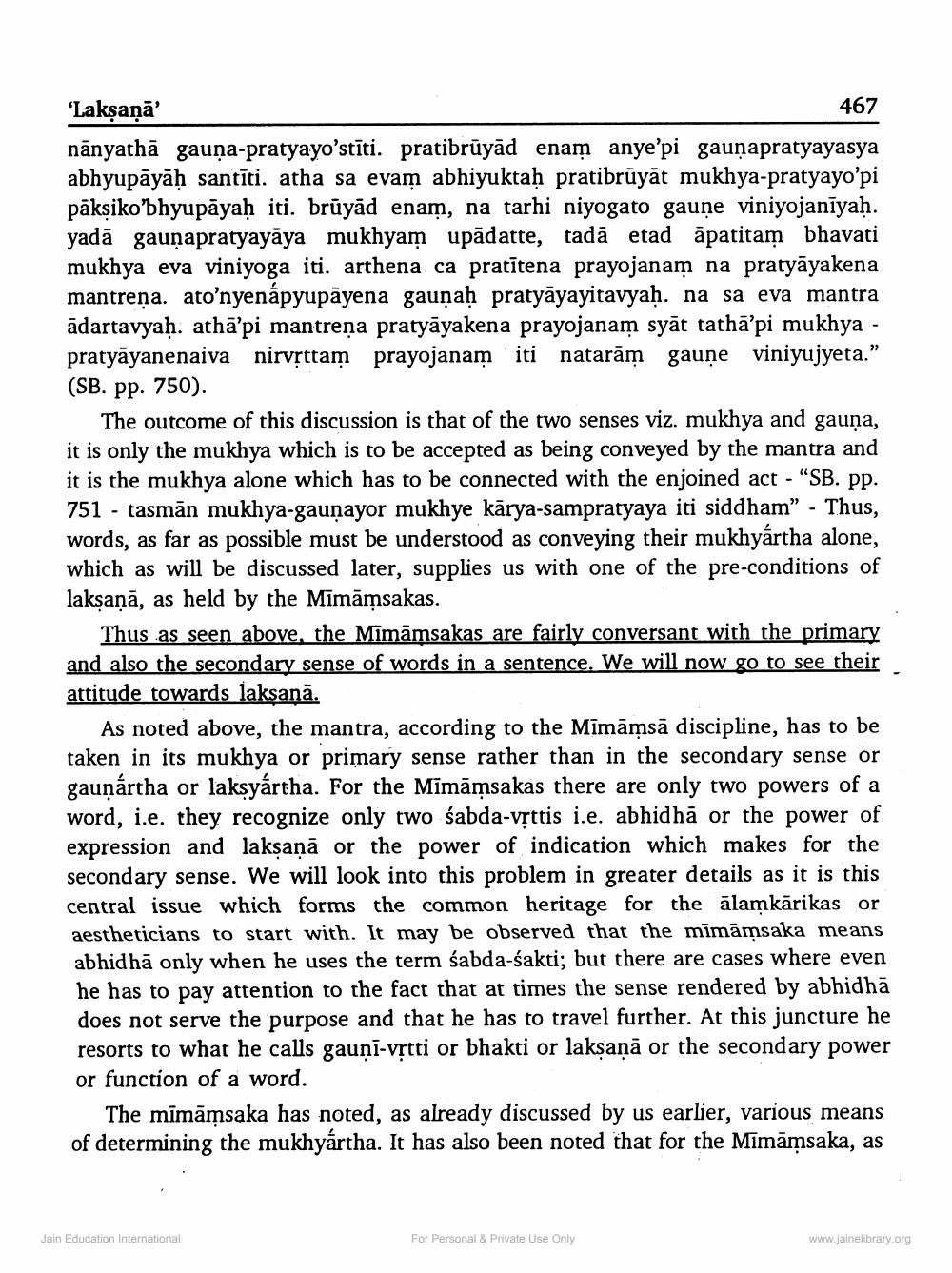________________
'Laksana'
467
nānyathā gauņa-pratyayo'stīti. pratibrüyād enam anye'pi gauņapratyayasya abhyupāyāḥ santīti. atha sa evam abhiyuktaḥ pratibrūyāt mukhya-pratyayo'pi pāksiko'bhyupāyaḥ iti. brūyād enam, na tarhi niyogato gaune viniyojanīyah. yadā gauņapratyayāya mukhyam upādatte, tadā etad āpatitam bhavati mukhya eva viniyoga iti. arthena ca pratitena prayojanam na pratyāyakena mantrena. ato'nyenāpyupāyena gaunah pratyāyayitavyah. na sa eva mantra ādartavyaḥ. athā’pi mantreņa pratyāyakena prayojanam syāt tathā’pi mukhya - pratyāyanenaiva nirvșttam prayojanamitinatarām gauņeviniyujyeta.” (SB. pp. 750).
The outcome of this discussion is that of the two senses viz. mukhya and gauna, it is only the mukhya which is to be accepted as being conveyed by the mantra and it is the mukhya alone which has to be connected with the enjoined act - "SB. pp. 751 - tasmān mukhya-gaunayor mukhye kārya-sampratyaya iti siddham” - Thus, words, as far as possible must be understood as conveying their mukhyartha alone, which as will be discussed later, supplies us with one of the pre-conditions of lakṣaṇā, as held by the Mimāmsakas.
Thus as seen above, the Mimāmsakas are fairly conversant with the primary and also the secondary sense of words in a sentence. We will now go to see their attitude towards laksanā.
As noted above, the mantra, according to the Mīmāmsā discipline, has to be taken in its mukhya or primary sense rather than in the secondary sense or gauņártha or laksyártha. For the Mimāmsakas there are only two powers of a word, i.e. they recognize only two śabda-vịttis i.e. abhidhā or the power of expression and laksanā or the power of indication which makes for the secondary sense. We will look into this problem in greater details as it is this central issue which forms the common heritage for the ālamkārikas or aestheticians to start with. It may be observed that the mimamsaka means abhidhā only when he uses the term sabda-sakti; but there are cases where even he has to pay attention to the fact that at times the sense rendered by abhidhā does not serve the purpose and that he has to travel further. At this juncture he resorts to what he calls gauņi-vștti or bhakti or lakṣaṇā or the secondary power or function of a word.
The mīmāmsaka has noted, as already discussed by us earlier, various means of determining the mukhyártha. It has also been noted that for the Mimāmsaka, as
Jain Education International
For Personal & Private Use Only
www.jainelibrary.org




